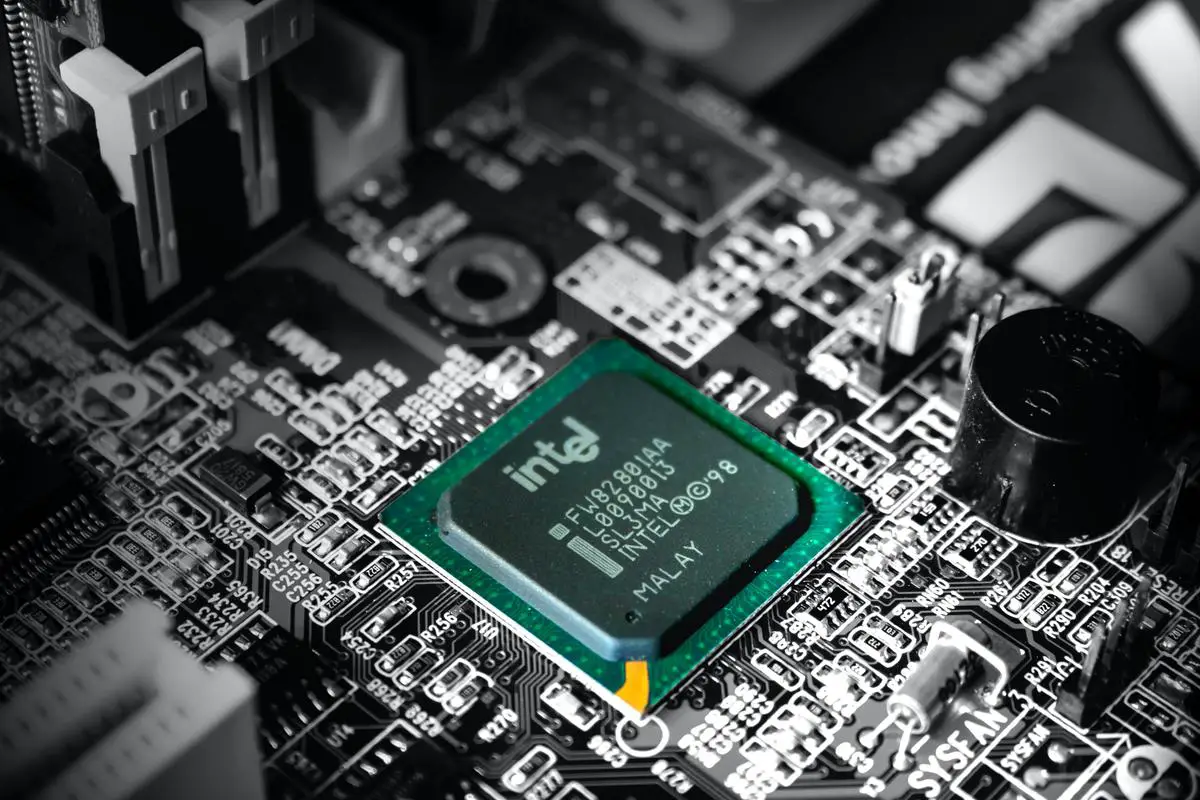As the world witnesses unprecedented technological advancement, Auto-GPT AI has emerged as one of the primary drivers of this transformative journey. An advanced iteration of previous AI models, Auto-GPT AI is rapidly redefining the technological landscape with its innovative applications and unparalleled capabilities.
While traditional AI laid the foundation, GPT propelled the shift into more complex tasks. Today, Auto-GPT AI takes the torch even further, revolutionizing various sectors, from healthcare and finance to logistics. Ignoring the impact of Auto-GPT AI on our world is no longer an option—it is an essential part of our technological reality. However, it also brings with it a set of challenges and pitfalls that require careful examination and discussion.
Introduction to Auto-GPT AI
Table of Contents
Auto-GPT AI: The Next Frontier In NLP Technology
As we plunge further into the 21st century, the importance of artificial intelligence, or AI, is impossible to ignore. From facial recognition software to recommendation algorithms on Netflix, AI is an integral part of our daily lives. While many strides have been made in this field, the quest for ‘the next big thing’ in AI continues. Enter an exciting new paradigm in AI: Auto-GPT AI.
To fully understand Auto-GPT AI, a working understanding of Generative Pretrained Transformers (GPT) AI’s role in natural language processing (NLP) is crucial. Essentially, GPT is an algorithm pre-trained on a large corpus of text data. It predicts or “generates” the likelihood of a word given the previous words used in the text. This technology is behind breakthrough applications such as OpenAI’s GPT-3, which astonishes with its interpretive and generative abilities.
Taking things a step ahead, Auto-GPT AI is a new version of the GPT AI, designed to learn more accurately and efficiently. The ‘Auto’ suggests the model learns autonomously and adapts to new data it deals with. This dynamic feature increases its proficiency and capability in processing natural language.
So, why is Auto-GPT AI such a game-changer?
Substantial Performance Improvements
Robert Frost once wrote, “The best way out is always through.” In AI, this couldn’t be more apt as the most significant advancements occur through iterative enhancements. Auto-GPT is no exception, showcasing notable performance improvements over its GPT predecessors, helping to reduce inaccuracies and improve overall performance.
Greater amount of ‘Unsupervised Learning’
AI, like humans, primarily relies on ‘learning’ to improve. In the context of Auto-GPT, ‘unsupervised learning’ means that the system isn’t provided with explicit instructions. Instead, it discovers patterns and draws inferences to predict outputs. This unsupervised nature allows Auto-GPT to better interpret and synthesize language complexities, significantly enhancing NLP efficiency.
Dynamic and Autonomous
Another key aspect that renders Auto-GPT a game-changer is its dynamic learning ability and autonomy. Unlike traditional models that need manual tuning, Auto-GPT evolves and adapts to new information, consistently fine-tuning itself. This autonomous, continual learning propels its efficiency, even allowing it to anticipate and predict future language processing requirements.
In summary, Auto-GPT AI marks a significant leap forward in NLP technology. Its enhanced performance, capacity for unsupervised learning, and the dynamic, autonomous nature of its learning ability speak volumes about its potency. As technology enthusiasts, keeping abreast of such cutting-edge developments is not just interesting, it’s imperative. After all, in the rapidly evolving world of AI, today’s innovation is tomorrow’s norm. Embrace the change, it’s Auto-GPT AI – a thrilling new game-changer in NLP technology. Welcome to the future!

Practical Applications of Auto-GPT AI
Unleashing the Power of Auto-GPT AI in Diverse Industries
A digital conquest unraveled as the Auto-GPT AI ventured into the multiplicity of sectors, proving invaluable in shaping the future landscape in industries across the board. With the paradigm shifts in the tech universe, Auto-GPT AI is driving forward an AI revolution, fanning out from NLP into countless other domains.
Let’s explore the process.
The Impacts in Healthcare
The healthcare universe has seen the first impacts of the Auto-GPT AI. Swift diagnostics through comprehensible analyses of complex patient data marks the beginning of preventive healthcare backed by this AI tool. By contributing significantly to disease detection and predicting health risks, Auto-GPT AI is set to redefine patient care procedures on a global scale.
Reliability in Finance
Banking and finance are embracing Auto-GPT AI with open arms. It’s minimizing the chance of human error in crunching huge quantitative data, forecasting market trends, predicting borrower defaults and more. Robo-advisors, leveraging this technology, have unlocked new horizons in personalized financial planning.
Empowering Education
Education, too, is seeing AI advancements. Auto-GPT AI, speculating comprehension levels and iteratively adjusting its own explanations, makes way for a tailored learning experience. It’s no longer discrete assignments, but an evolving learning companion, fostering individual development.
Brandishing Business Strategies
The corporate world is harvesting the benefits of Auto-GPT AI tools. It assists in strategic management, organizing data, and understanding consumer behavior to deliver insights with relentlessly improving accuracy. The tool predicts market trends, effectively reducing risks and helping businesses build robust strategies.
Driven by Data in the Legal Realm
In the legal domain, Auto-GPT AI is significantly doing away with manual document reviews, freeing up productive time while enhancing accuracy. This tool is proving itself by becoming an impeccable ally in processing millions of legal documents with unmatched speed and precision, revolutionizing the way law firms operate.
Ushering a New Age in Journalism
AI-enabled journalism is another breakthrough. Auto-GPT AI is assisting reporters with accurate data analyses, solving the bottleneck of information processing. The tool sifts through data rapidly, provides clear contexts, thus helping journalists generate compelling stories much faster.
All these, and many more, depict how Auto-GPT AI is reimagining the world. Utilizing unsupervised learning capabilities, this AI is not just a tool, but a thriving ecosystem, preparing every sector for the AI-first world with a promise to enrich productivity and efficiency in unprecedented ways. Categories should embrace this revolution because Auto-GPT AI isn’t just touching lives – it’s reshaping reality.

Challenges and Pitfalls of Auto-GPT AI
Optimizing the opportunities offered by Auto-GPT AI does not come without its challenges and potential hazards. It’s essential to acknowledge the hurdles that might occur in the process and devise a plan to mitigate each one.
First, it is vital to mention the high computational requirement that comes with the deployment of Auto-GPT AI models. To improve and maintain model efficiency, a significant amount of computational power and data storage is needed, pushing the capacity of most average systems. Thus, organizations must ensure the availability of robust hardware and software capabilities before integrating Auto-GPT AI.
Secondly, Auto-GPT AI might be challenged by data privacy concerns. As with any AI model utilizing vast amounts of data for learning, privacy and security concerns arise. These models can inadvertently learn and reproduce private or sensitive information present in their training data, which can lead to violations of privacy rights and data breaches. Comprehensive data anonymizing techniques and strong encryption methods are critical considerations when dealing with this problem.
Moreover, Auto-GPT AI relies heavily on the quality of data. In many cases, the old programmer adage of “Garbage In, Garbage Out” holds true. Bias or errors in the input data can be replicated or even amplified in the AI’s outputs. This scenario may be devastating in fields like healthcare and finance where errors can have significant consequences. Cleaning and appropriately curating the data for these AI systems is, therefore, an incredibly important and challenging process.
Another contention area with Auto-GPT AI’s implementation is the difficulty in interpreting its decision-making process. Despite the effectiveness and efficiency of these models, they are often referred to as “black boxes”. The gap in understanding the decision-making pathway might lead to mistrust and lack of utility in some critical applications. Efforts to make these AI models more interpretable and transparent, at least in critical domains, will be crucial.
Lastly, there’s the question of job disruption. With Auto-GPT AI’s ability to generate human-like text, jobs centered around content creation might face significant changes or even potential elimination. As with any technological revolution, the onus falls on society to work out how to navigate these changes and ensure minimal negative impacts on employment.
In conclusion, while Auto-GPT AI heralds a new and exciting revolution in NLP applications across various industries, it’s not without significant challenges and potential pitfalls. With careful planning, appropriate resource allocation, and a keen awareness of potential setbacks, these obstacles can be mitigated and the full potential of Auto-GPT AI can be unleashed.
Future Predictions and Advancements in Auto-GPT AI
Onwards, the article will discuss how the potential of Auto-GPT AI converges with practical, real-world applications impacting fields including but not limited to healthcare, finance, education, business strategies, legal, journalism, and other industries.
Auto-GPT AI’s role in the future of healthcare is worth noticing. It can revolutionize diagnostics and predictive analytics. Automated diagnosis can reduce human error and increase the accuracy of medical outcomes. The ability to predict potential health problems based on a person’s history and lifestyle is another promising feature. This approach benefits both patients and healthcare providers by offering early prevention measures and optimizing treatment plans.
In the finance sector, reliability is key and Auto-GPT AI shines there. It can make predictions of market trends, perform risk assessment, and automate administrative tasks. This precision and reliability can immensely benefit financial institutions, streamlining their services and enhancing customer experience.
Education is another field where Auto-GPT AI can bring monumental changes. It can predict learning patterns, customize instruction methods, and evaluate progress instantly. Such insights can enhance teaching methodology, making education more effective and student-oriented.
Companies are already using Auto-GPT AI to refine their business strategies. It provides valuable insights by analyzing vast amounts of data. Everything from optimizing operations to customer interactions can be improved, driving business growth and profitability.
In the legal realm, Auto-GPT AI can automate document review, predict legal outcomes, and even automate some legal advice. It’s transforming the field by making services more accessible and efficient.
The journalism sector too can reap benefits from Auto-GPT AI. It can automate news reports, especially for financial and sports updates, allowing journalists to focus on critical thinking and innovative story-telling.
Beyond these sectors, a myriad of other industries can harness Auto-GPT AI’s potential. It’s poised to touch every aspect of society, delivering untapped efficiencies and unveiling new possibilities.
However, as with all technology, there are challenges to adopting Auto-GPT AI. The high computational requirements can be a roadblock for smaller businesses. Concerns about data privacy are also significant, as AI works best with vast amounts of data.
Quality of data is crucial too; inadequate or biased data can skew the outcomes, tarnishing the reliability of AI. Moreover, AI’s decision-making process often remains a ‘black box’, raising questions about transparency. Lastly, there’s the much-debated topic of job disruption. It’s argued that automation will render some jobs obsolete, leading to a shift in the employment landscape.
As we gaze into the future, it’s crucial that these challenges are addressed. Despite these concerns, the impact and potential of Auto-GPT AI can’t be denied. Its role in driving efficiency and establishing new norms in performance is evident. If navigated wisely, this technology holds the key to an exciting, undreamed-of future. The world is set to embrace this AI revolution, and it’s thrilling to be a part of this tech paradigm shift. If we’ve learned anything in our journey so far, it’s that the future promises unprecedented progress. And with Auto-GPT AI at the helm, it promises to be quite a ride.

As we step into a future largely defined by the advancements in Auto-GPT AI, it’s essential that we remain open to the transformative changes it brings. Nevertheless, we must also be aware of the ethical, societal, and compatibility issues that accompany this rapid tech evolution.
The potential of Auto-GPT AI is immense—it promises a future where complex tasks are seamlessly automated, enriching our lives and industries. While certain obstacles may temporarily impede its seamless integration, the potential benefits far outweigh the costs. By learning, adapting, and preparing for this shift, we equip ourselves for a world that will inevitably be shaped by AI technology.

I’m Dave, a passionate advocate and follower of all things AI. I am captivated by the marvels of artificial intelligence and how it continues to revolutionize our world every single day.
My fascination extends across the entire AI spectrum, but I have a special place in my heart for AgentGPT and AutoGPT. I am consistently amazed by the power and versatility of these tools, and I believe they hold the key to transforming how we interact with information and each other.
As I continue my journey in the vast world of AI, I look forward to exploring the ever-evolving capabilities of these technologies and sharing my insights and learnings with all of you. So let’s dive deep into the realm of AI together, and discover the limitless possibilities it offers!
Interests: Artificial Intelligence, AgentGPT, AutoGPT, Machine Learning, Natural Language Processing, Deep Learning, Conversational AI.



